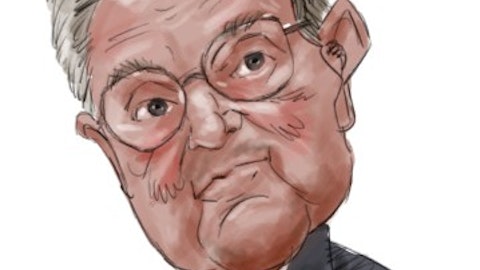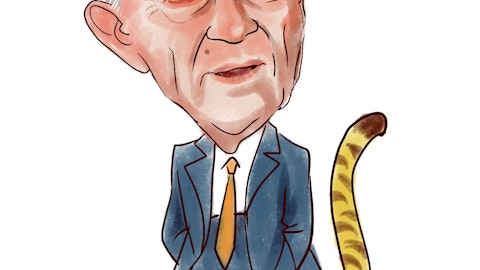
Tiger sold about 200,000 shares in PNC Financial Services Group (NYSE:PNC) and about 370,000 shares in Wells Fargo (NYSE:WFC). We think that these decisions were connected in a macro play which also explains Tiger’s new position in JPMorgan Chase: Robertson believes that banks such as Wells Fargo, despite their appeal to Warren Buffett, aren’t as good values anymore. PNC, for example, trades at 13 times trailing earnings and roughly even with its book value. Wells Fargo- much larger- trades at 11 times trailing earnings and a P/B multiple of 1.3. Compare this with JP Morgan: the company is currently in poor sentiment with the market because of the London Whale related losses, but it continues to have a strong market position. Yet it trades at a trailing P/E of 9 and a P/B of 0.8. This is why we wrote earlier this month that JPMorgan and Citigroup are better bets than Wells Fargo, and we are pleased to see that a top investor shares two-thirds of our view. We could see a pair trade including Wells Fargo on the short end as a good play.
Robertson also closed Tiger’s position in Starbucks (NASDAQ:SBUX). The fund had picked up about 220,000 shares during the first quarter and then sold them all between April and June. Starbucks has had a great recovery- the share price has doubled in the last two years, though it peaked in early April. In its most recent quarter it reported 19% earnings growth compared to the same period in 2011, but our guess is that future growth has generally been captured by the stock price. Starbucks trades at a trailing price-to-earnings ratio of 27 and a forward P/E of 23. In addition, despite the growth of the stock price, sell-side earnings estimates have been fairly on target for the last several quarters: within 5% of the actual reports each time, and not always to the upside. We would say that the share price has probably outpaced the company’s growth for now and investors should wait for future developments.
Then there’s Netflix (NASDAQ:NFLX). This was another new position for Tiger during the first quarter, but all 80,000 shares it reported at the end of March were gone by the end of June. Netflix has had a wild ride over the last year- above $200, close to $60, up above $120, and then below $60 earlier in August before currently pricing around $65. It’s difficult to determine the company’s future prospects based on earnings as the company promises strong growth once it has fully embraced streaming video distribution yet has to confront large licensing expenses if it wants the content. Currently it trades at 37 times trailing earnings, with forward estimates from the Street being lower than what the company has earned in the past. We wouldn’t feel like taking a risk on Netflix and we’re guessing that Robertson sold because he decided he didn’t want to either.
Tiger also sold about 140,000 shares of SanDisk (NASDAQ:SNDK), zeroing out its position in the $10 billion market cap memory card and data storage service company. SanDisk’s last quarterly report was miserable, as the company announced revenue 25% below the numbers from the same period in the previous year. Earnings fell by 95%. Sell-side analysts believe that the company is just going through a rough patch and that 2013 earnings per share will be 73% above this year’s, implying a forward P/E of 14 in the process. If Robertson were buying, and adding his confidence beside that of the Street, we might encourage investors to take a look at the company but given that he is selling we think we can advise avoiding this stock as well.




